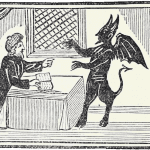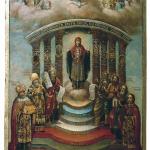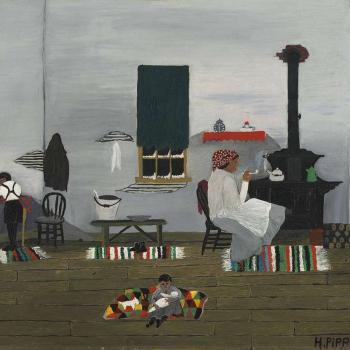Other relevant passages exist (examples here and here), but I’ve chosen this one because of the close relationship established between following Christ (obeying God) and divesting oneself of the things of this world. Peter says that he and the others have left behind their things and followed Jesus. What, then, does this putting off of the world mean? Among many other things, it quite clearly (as we see in Acts) means to succoring the poor and outcast (again, many other examples could be culled, but here we see a direct connection between Christ’s words and the lives of the Apostles after His Ascension).
We know, for example, that defrauding a worker of his or her just wage and oppressing the poor are among the sins that cry out to heaven for vengeance; we know that solidarity is a primary principle of Catholic Social Teaching. We therefore know that obeying the Lord means standing by those left behind by society. Do not those not paid enough to eat, those injured and left without the ability to work (on account of a lack of workers’ compensation or adequate protections), those worked to the bone while others grow rich and accumulate a growing percentage of the globe’s wealth qualify as oppressed (for those inclined to think these are not issues today, I invite them to consider what Dorothy Sayers, Tolkien, and other fairly-conservative thinkers have written about work in industrialized societies)?
It may not seem immediately intuitive, but this is what Mary teaches us. Her acceptance of God’s will is the paradigm for obedience within the Faith. No matter how hard, no matter how uncomfortable, no matter how seemingly incomprehensible, we are called to obey in humility and love. Mary said yes to a virgin birth (an event that, never mind the obvious social consequences, simply seems to defy human reason). Are we really in a position to argue among ourselves while some hoard wealth and others starve?
As noted above, this is also the month of rebirth, encapsulated by Mary’s decision to give birth to Christ, to make possible our redemption in the New Adam. We know the Kingdom is yet to come, but we ought not forget that it is already among us:
Asked by the Pharisees when the kingdom of God would come, he said in reply, “The coming of the kingdom of God cannot be observed, and no one will announce, ‘Look, here it is,’ or, ‘There it is.’ For behold, the kingdom of God is among you.” (Luke 17:20-21)
As the priest said in his homily this past weekend at Divine Liturgy (I am, of course, paraphrasing): yes, the kingdom is coming; yes the judgment is coming. But we are also called to live the Kingdom now! We are a chosen people!
In other words, Mary (and May’s) pointing to rejuvenation is a reminder to us to consider the ways in which we can do the Lord’s will on earth, bring hope, love, and justice to a broken world. We are called to do God’s work and that means recognizing the possibility of a better world.
There are my thoughts on this May Day. I can only hope that you’ve found something of value in them. I’ll leave you with the words of a prophet a friend posted on Facebook earlier today:
Woe to him who builds his house on wrongdoing,
his roof-chambers on injustice;
Who works his neighbors without pay,
and gives them no wages.
Who says, “I will build myself a spacious house,
with airy rooms,”
Who cuts out windows for it,
panels it with cedar,
and paints it with vermilion.
Must you prove your rank among kings
by competing with them in cedar?
Did not your father eat and drink,
And act justly and righteously?
Then he prospered.
Because he dispensed justice to the weak and the poor,
he prospered.
Is this not to know me?—
oracle of the LORD.
But your eyes and heart are set on nothing
except your own gain,
On shedding innocent blood
and practicing oppression and extortion.
Therefore, thus says the LORD concerning Jehoiakim, son of Josiah, king of Judah:
They shall not lament him,
“Alas! my brother”; “Alas! sister.”
They shall not lament him,
“Alas, Lord! alas, Majesty!”
The burial of a donkey he shall be given,
dragged forth and cast out
beyond the gates of Jerusalem.
(Jeremiah 22:13-19)













